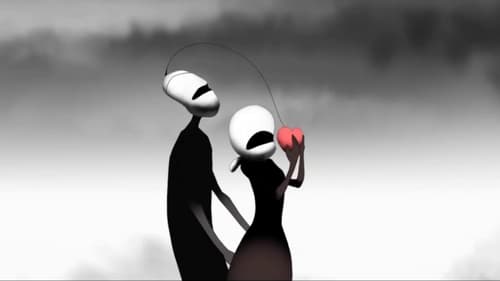Gloria (2015)
One man. Two fates.
장르 :
상영시간 : 17분
연출 : Luis Hernández de la Peña
시놉시스
Amidst the complex Mexico City, a man drives a public transport bus during daytime and works the night shift impersonating Mexican songstresses in a drag cabaret.

Two men in adjoining duplexes, good friends, are enchanted by the song of a bird. One buys a small harmonica and learns to play it; he keeps his neighbor awake. The neighbor buys a larger harmonica, and an arms race ensues; the instruments get larger, until it's a piano vs. a pipe organ, and then they start bringing in larger groups of friends until an entire orchestra is playing the 1812 Overture. The houses collapse from all this, atop the dueling orchestras, and on their way up to heaven, the man puts his small harmonica up for sale.

A young cellist has to overcome her fears in order to keep her position in an orchestra.

A film created by Les Blank and Maureen Gosling from footage that was cut from the documentary "Always for Pleasure" (1978) about Mardi Gras in New Orleans.

Johnny Green leads the MGM Symphony Orchestra in a medley of waltzes and other familiar pieces by three members of the Strauss family.

When you think of Latin percussion, think of Francisco Aguabella. Perhaps the finest Afro-Cuban master percussionist still living, he has become synonymous with his instrument — one of the highest compliments a musician can receive. Indeed, what Carlos Santana is to the guitar, Aguabella is to the conga drum.

A drama based on the novel by Charles Dickens which tells the story of Arthur Clennam who is thrown into a debtor's prison. There he meets a young seamstress whose father has been imprisoned for twenty-five years. A film in originally released in two parts.

Popeye's nephews have been practicing their music and are getting good, but it's bedtime. After Popeye puts them to bed, they discover that many of the things in their bedroom can also be used to make music. And they are also blessed with an uncanny ability to appear to sleep every time Popeye comes to check on them.

Tomas is a boy so shy that is not capable of saying a word to nobody. With the arrival of Andy (his invisible friend) he'll start to think how his life would it be if he was able to communicate with the people that is around him.

초월에 대한 탐구. 인간의 심장을 묘사한 일러스트와 함께, 추상적 은유와 상징을 통해 관객에게 질문을 던진다.

A single street sweeper faces the odorous task of cleaning up the city market:a motley selection of other, more idiosyncratic street cleaners join him as his sweeping transforms into a dynamic celebration of rhythm. Loosely based upon the opening sequence of the UK percussion show, STOMP.

A Genie Award winning documentary about electronic music pioneer Delia Derbyshire, primarily remembered for the original realization of Ron Grainer's theme for Doctor Who and her work with the BBC Radiophonic Workshop.

It is sunset in a mountain landscape. An orchestra and a choir, along with a large group of adolescents who act as "living-music-stands", are filmed as they play the first part of Mahler’s 8th Symphony. The musicians gradually begin to move in a precise choreography, led by their living-music-stands. As these movements are executed, disparate groups of musicians, singers, and living-music-stands begin to disappear along with the sounds that they emit. The music progressively becomes a sound object captured in the course of its own erosion, which corresponds to the slow dissolution of the landscape’s visibility due to the setting sun. Ultimately, the music as a sound object and the landscape as a visual object become identical, all while being completely transformed in regard to the starting configuration. Thus, in TRENTO SYMPHONIA, the landscape becomes a point of convergence between contemplation, correspondence, and imagination.

A boy's childhood scars his life.

Directed by Kote Mardzhanishvili Production: Georgia Goskinprom The fate of two Georgian schoolchildren, Gogi and Kiko, who share a love of painting, a dream to go to art school. The action of the film begins on the eve of the October Revolution.

Fidencio, an old violinist, embarks on a search for the members of his old orchestra in order to receive his son. When life falls silent, music reunites us.

"Trees and Jamaica Daddy" was the first of a UPA series (short-lived) that featured two different subjects (plot, characters)running about 3.5 minutes each, on a seven-minute reel. The first one here was titled "Trees", featuring a little girl named Hattie giving her version of the birds, the bees and trees. The second one on the reel was called "Jamaica Daddy", about the animated Hamilton Ham and his band, who tell all about, in music and the usual UPA animation style, Jamaica Daddy, and his family tree in calypso fashion. "Ham-and-Hattie" were not a team, and did not appear together in this cartoon.

Profiles Roy Smeck, a former vaudeville star known as "The Wizard of the Strings" because of his virtuoso talents on the guitar, banjo, ukelele and Hawaiian guitar, and who is shown to be still active, in his mid-80s, teaching students and giving occasional public performances.

The film is a series of comical musical numbers and skits following Phil Harris around, starting with him performing at the Cocoanut Grove nightclub, which is listened to by Dorothy on the radio whose home-brewing husband Walter hates Harris. The action then moves to the country club where Walter unknowingly encounters Harris while being aggravated by his music. Walter then pretends to be Phil to meet a woman while Harris "entertains" her friend, Dorothy.

The Smoke Bomb Boys are the guys who never really fit in. They do things their own way with a course set for the dream: no shitty jobs, no complicated relationships, just hanging out, blowing stuff up and fucking around. But sometimes the realities of the real world may make that seem like it's not enough and fosters an internal struggle over conformity and acceptance within their group. Choices are made, friendship's are tested, and shit explodes.

Love You till Tuesday was a promotional film designed to showcase the talents of David Bowie, made in 1969. The film was the latest attempt by his manager, Kenneth Pitt, to bring Bowie to a wider audience. Pitt had undertaken the film after a suggestion by Gunther Schnedier, producer of German TV show '4-3-2-1 Musik Für Junge Leute' for the ZDF network.





